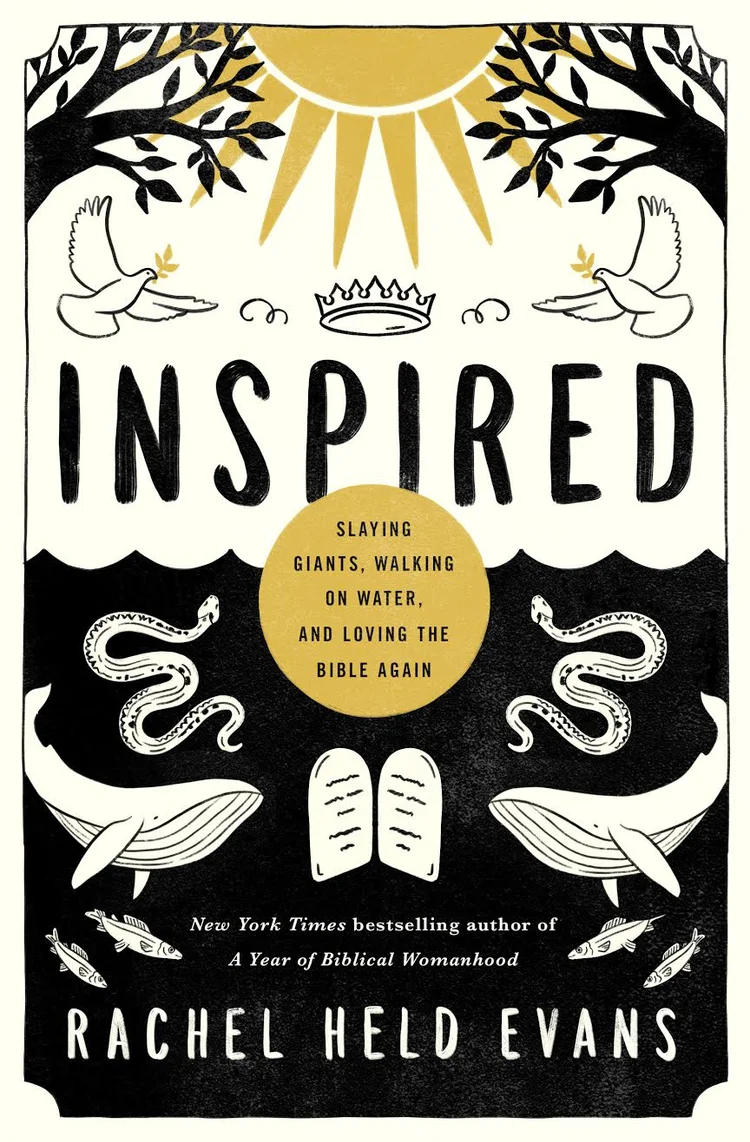My book side panel has a religious slant of late. A book about former evangelicals referenced Rachel Held Evans (RIP). This led me to re-read (again) her book Inspired.
As I noted before:
The book is written by a believer but is a more complex interpretation that doesn't rely so much on faith. You might not agree where she arrives, but Evans notes how the text leaves one questioning and often is not to be meant literally. It still can be "true."
By chance, today is the fifth anniversary of her death. Her voice lives on, including in two additional books. One is a children's book about God:
In the book co-authored with Matthew Paul Turner, Held Evans encourages children to “think about what makes you feel safe, what makes you feel loved, and what makes you feel brave. That’s what God is like.”
Her husband is an agnostic. He has said:
When pressed about my belief in God, the best answer I have is “I don’t know.”
I do not know when he started feeling this way. His wife shifted from a conservative evangelical childhood to a more liberal religious belief system. I do recall a reference that her death factored in somehow though perhaps it can be she had the strongest belief in God already and her dying made his agnosticism more glaring.
I once wrote a discussion on why we believe in God. I noted that religion can be a form of poetry. Poetry uses symbolic language which is not meant to be taken literally. It still matters. If the violent imagery used in some parts of the Bible is merely symbolism, it is still bad symbolism. The death and destruction in Revelations are not benign even if it is just a sort of poetry.
I think of "God" as a symbol. When people ask "Do you believe in God," they usually mean a certain thing. God is often deemed all-knowing, all-powerful, and all-beneficent. This is far from necessary as the gods of the old show. It all seems rather unrealistic given the state of the world.
Unlike Job, I am not going to be pressured to stay silent since I didn't make mountains or hurricanes.* The world is filled with both glorious and horrible things. An all-powerful God would be responsible for both.
I am struck by those who damn God or even the concept of God when someone close to them suffers. Did not the suffering of innocents occur before your child or parent had to deal with it? I understand being human. You feel the most pain when a person close to you suffers.
Nonetheless, it takes a healthy amount of selfishness to damn God when your child suffers and not when millions of other children suffer. I reexamined the thought recently. If God is symbolic, perhaps the truth of the matter is that a person whose child suffers has lost goodness.
This makes things more understandable if still somewhat selfish. Again, I am not so full of myself to not have human empathy for personal suffering. I surely do not care about everyone in the world equally. A person who breaks up with a beloved person has lost love without love not existing at all. The personal can therefore have a significant result.
Again, Rachel Held Evans provides a liberal open-minded understanding of the Bible. She notes that the Bible speaks of the "living God" and the meaning of the Holy Word continues to develop over time.She did the research to further understand the original context and how people over the years understood its meaning. Rachel Held Evans had a passionate desire to write and speak out, she was an evangelist. She had a love of learning and doing research. I can respect that.
I hold to my belief that this was her best book. It provides a good summary of the Bible in around two hundred pages.
==
* Scholars believe the Book of Job is a compilation of different sources. But, we take it as it comes here.
There is a good thing about God's final appearance. Job is cowed to repent to a position other than his lowliness next to the greatness of God. But, he was praised for this.
God criticized Job's know-it-all friends, who spent most of the book lecturing Job. There is a lot of poetry there as Rachel Held Evans notes. Still, God's final judgment is that they are full of hot air. Too much assurance.
Humility about our knowledge of God's plan, especially while a fellow human is suffering, is a better path.


No comments:
Post a Comment
Thanks for your .02!